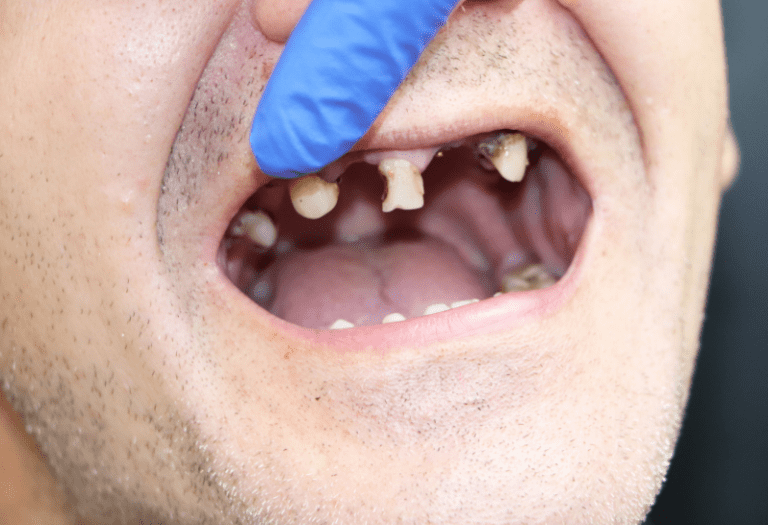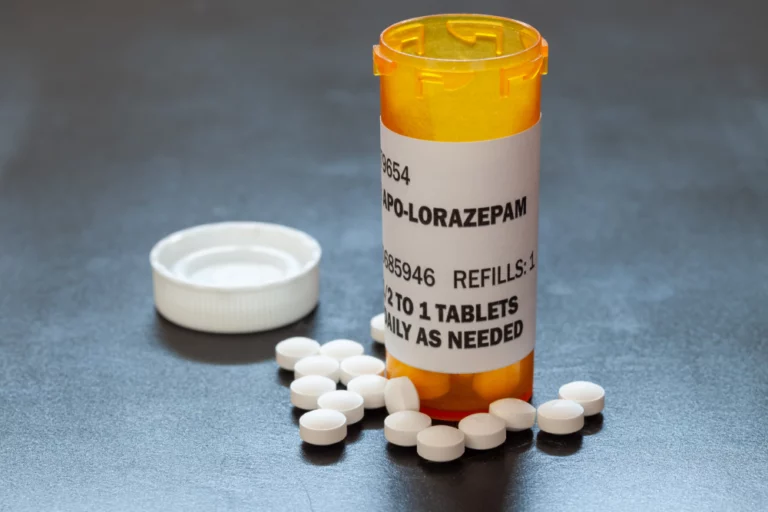Choosing to embark on the journey of recovery from substance use can be daunting, filled with uncertainty and emotional challenges. Many individuals hesitate to seek help due to fears of disruption to their work, family life, or personal responsibilities.
However, understanding the available treatment options—such as outpatient drug rehab—can ease this transition by providing a flexible yet structured path to sobriety. Unlike inpatient programs that require a residential stay, outpatient rehab allows individuals to receive professional support, therapy, and medical care while continuing to meet their daily obligations.
This balance of accessibility and accountability makes outpatient treatment an appealing and practical choice for many who are committed to recovery but need to maintain their routines. By offering personalized care, community support, and essential coping strategies, these programs empower individuals to rebuild their lives without putting everything on hold.

Understanding Outpatient Drug Rehab
Outpatient drug rehab programs are specifically designed to provide flexibility and accessibility for individuals seeking treatment for addiction while balancing the demands of everyday life. Unlike residential or inpatient programs, which require participants to live at a treatment facility for an extended period, outpatient rehab allows patients to remain at home, maintain employment, and fulfill personal or family responsibilities while still receiving structured, professional care.
This model is particularly beneficial for those with mild to moderate substance use disorders, strong support systems at home, or external obligations that prevent them from committing to a full-time residential program. Treatment typically includes a combination of individual therapy, group counseling, medication-assisted treatment (if needed), and educational workshops—all scheduled around the patient’s existing routine.
By offering a less disruptive yet highly effective approach to recovery, outpatient rehab empowers individuals to integrate healing into their daily lives, fostering long-term sobriety without requiring complete withdrawal from work, school, or family life. Additionally, the ability to practice coping skills in real-world settings during treatment can strengthen resilience and better prepare individuals for sustained recovery after program completion.
The Basics of Outpatient Drug Rehab
- Treatment Structure: Typically, these programs include therapy sessions, educational workshops, and group counseling, all tailored to fit into a person’s daily schedule.
- Tailored Programs: Outpatient treatment plans are personalized to meet the specific needs of the individual, ensuring a comprehensive approach to recovery.
Types of Outpatient Programs
- Partial Hospitalization Programs: These are intensive programs requiring several hours of therapy each day. Suitable for those needing a higher level of care without full hospitalization.
- Intensive Outpatient Programs: IOPs require attendance at therapy sessions and group meetings several times a week, focusing on relapse prevention and life skills development.
- Standard Outpatient Therapy: Involves fewer hours of weekly therapy, ideal for maintaining sobriety post-intensive treatment or for those with mild addictions.

What to Expect in Outpatient Drug Rehab
When enrolling in outpatient drug rehab, understanding the components and expectations can help in transitioning smoothly into the program.
Comprehensive Evaluation
- Initial Assessment: At the outset, a thorough assessment is conducted to understand the individual’s substance use history and any co-occurring mental health issues, enabling the development of a personalized treatment plan.
Therapy and Counseling
- Individual Therapy: Focuses on identifying underlying causes of addiction, developing coping strategies, and setting achievable recovery goals.
- Group Therapy: Encourages peer support, providing a network of individuals sharing similar experiences, fostering community and mutual encouragement.
Educational Workshops
- Knowledge is Power: Programs often include education sessions about addiction, enabling individuals to understand their behaviors and triggers better.
- Life Skills Training: Workshops may cover stress management, communication strategies, and other essential skills for maintaining sobriety.

The Benefits of Outpatient Drug Rehab for Addiction Recovery
Choosing the right treatment program is a critical step in the journey toward sobriety. For many individuals struggling with addiction, outpatient drug rehab offers a practical and effective solution. Unlike inpatient programs that require a residential stay, outpatient rehab provides structured treatment while allowing patients to live at home and maintain their daily responsibilities.
This flexibility, along with numerous other advantages, makes outpatient rehab an appealing option for those seeking recovery without putting their lives on hold. Below, we explore the key benefits of outpatient drug rehab and why it may be the right choice for many individuals.
1. Flexibility and Convenience
One of the most significant advantages of outpatient rehab is its flexibility. Many people cannot commit to inpatient treatment due to work, school, or family obligations. Outpatient programs allow individuals to attend therapy sessions, counseling, and medical appointments during the day or evening while still fulfilling their personal and professional responsibilities. This adaptability makes treatment more accessible, particularly for those who need to continue working or caring for loved ones while in recovery.
2. Lower Cost Compared to Inpatient Treatment
Inpatient rehab programs often come with high costs due to 24/7 medical care, housing, and meals. Outpatient treatment, on the other hand, is generally more affordable because it does not include residential expenses. Many insurance plans cover outpatient rehab, making it a financially viable option for individuals who need quality care without the steep price tag of inpatient facilities.
3. Real-World Application of Coping Skills
A major benefit of outpatient rehab is the ability to immediately apply recovery strategies in real-life situations. Unlike inpatient programs, where patients are in a controlled environment, outpatient treatment allows individuals to practice sobriety while navigating everyday challenges. This hands-on approach helps reinforce healthy habits, improve relapse prevention skills, and build confidence in managing triggers outside of treatment.
4. Strong Support Network Integration
Recovery thrives on support, and outpatient rehab encourages patients to lean on their existing relationships with family, friends, and peers. Many programs include family therapy sessions, helping to repair strained relationships and educate loved ones about addiction. Additionally, outpatient treatment often connects individuals with local support groups, such as 12-step meetings or sober communities, fostering long-term accountability and encouragement.
5. Personalized Treatment Plans
Outpatient rehab programs are tailored to meet each patient’s unique needs. Treatment plans may include:
- Individual therapy (Cognitive Behavioral Therapy, Motivational Interviewing, etc.)
- Group counseling (peer support and shared experiences)
- Medication-Assisted Treatment (MAT) (for opioid or alcohol dependence)
- Holistic therapies (mindfulness, yoga, or art therapy)
This customized approach ensures that individuals receive care that aligns with their specific addiction severity, mental health needs, and personal goals.
6. Gradual Transition to Independence
For those stepping down from inpatient rehab, outpatient treatment serves as a crucial bridge to independent living. It provides continued structure and professional support while allowing individuals to reintegrate into society at their own pace. Similarly, those who begin with outpatient care can transition to more intensive programs if needed, ensuring they receive the appropriate level of care throughout their recovery journey.
7. Reduced Stigma and Greater Privacy
Some individuals avoid seeking help due to the stigma associated with addiction treatment. Outpatient rehab offers a more discreet option, allowing patients to attend sessions without extended absences from work or social circles. This privacy can make the recovery process feel less intimidating and more manageable.
Outpatient drug rehab provides a balanced, effective, and accessible path to recovery for many individuals. With benefits such as flexibility, affordability, real-world skill-building, and personalized care, it empowers patients to achieve sobriety without sacrificing their daily lives.
While it may not be suitable for severe addictions requiring medical detox or 24/7 supervision, outpatient treatment remains a vital option for those committed to recovery while maintaining their independence. For anyone considering addiction treatment, exploring outpatient rehab could be the key to sustainable, long-term healing.
FAQs About Outpatient Drug Rehab
What makes outpatient drug rehab effective?
Outpatient drug rehab is effective due to its flexibility and its focus on integrating treatment with everyday life. This setup allows individuals to immediately apply learned strategies to real-world scenarios, aiding in lasting recovery.
How does outpatient rehab differ from inpatient rehab?
Outpatient rehab allows individuals to live at home and maintain daily responsibilities while participating in treatment sessions. In contrast, inpatient rehab requires residing at a facility, offering 24-hour care but limiting outside activities during program duration.
What are the benefits of choosing outpatient drug rehab?
The benefits include maintaining personal and professional responsibilities, developing a strong community support network, and the ability to apply coping strategies in real-time. It’s also generally more accessible and cost-effective compared to inpatient options.

The Path to Recovery with Outpatient Drug Rehab
Outpatient drug rehab offers a balanced and practical approach to addiction recovery, blending professional treatment with the flexibility to maintain daily responsibilities. Unlike more restrictive inpatient programs, outpatient care allows individuals to engage in structured therapy, counseling, and medical support while still living at home, working, and staying connected to their support systems. This model fosters personal accountability and self-discipline—key components of long-term sobriety—while ensuring access to evidence-based treatments tailored to each person’s needs.
Understanding what to expect from outpatient rehab can alleviate uncertainties and empower individuals to take the first step toward recovery with confidence. From individual therapy and group sessions to medication-assisted treatment (MAT) and relapse prevention strategies, these programs equip participants with the tools they need to navigate challenges and build a healthier future. The ability to immediately apply coping skills in real-world settings strengthens resilience and reinforces progress in ways that isolated inpatient treatment cannot.
If you or a loved one are considering outpatient treatment, Knoxville Recovery Center is here to help. Our compassionate team specializes in creating customized recovery plans that address substance use disorders while accommodating work, family, and personal commitments. We believe that recovery should be accessible, sustainable, and aligned with each individual’s lifestyle and goals. For more helpful information about outpatient drug rehab services, contact us or call us today.
In need of outpatient drug rehab services but not located in Knoxville, TN? Our HCANA affiliate addiction recovery center, Oasis Recovery Center, can help. Explore their outpatient treatment services in Asheville, NC.








